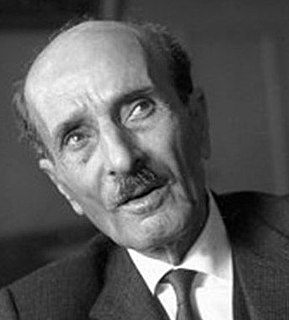A Quote by Thomas Hardy
George's son had done his work so thoroughly that he was considered too good a workman to live, and was, in fact, taken and tragically shot at twelve o'clock that same day—another instance of the untoward fate which so often attends dogs and other philosophers who follow out a train of reasoning to its logical conclusion, and attempt perfectly consistent conduct in a world made up so largely of compromise.
Related Quotes
He who expects from a great name in politics, in philosophy, in art, equal greatness in other things, is little versed in human nature. Our strength lies in our weakness. The learned in books are ignorant of the world. He who is ignorant of books is often well acquainted with other things; for life is of the same length in the learned and unlearned; the mind cannot be idle; if it is not taken up with one thing, it attends to another through choice or necessity; and the degree of previous capacity in one class or another is a mere lottery.
There's a stone I had made for Luke at the top of the hill road, where the pasture opens wide and the setting sun highlights the words carved into its face. "That'll do, Luke, that'll do." The words are said to working dogs all over the world when the chores are done and the flock is settled: "That'll do dog, come home now, your work is done." Luke's work is done too. He took my heart and ran with it, and he's running still, fast and strong, a piece of my heart bound up with his, forever.
The principal, the only, thing a man makes, is his condition of fate. Though commonly he does not know it, nor put up a sign to this effect, "My own destiny made and mended here." (Not yours.) He is a master workman in the business. He works twenty-four hours a day at it, and gets it done. Whatever else he neglects or botches, no man was ever known to neglect this work. A great many pretend to make shoes chiefly, and would scout the idea that they make the hard times which they experience.
But medicine has long had all its means to hand, and has discovered both a principle and a method, through which the discoveries made during a long period are many and excellent, while full discovery will be made, if the inquirer be competent, conduct his researches with knowledge of the discoveries already made, and make them his starting-point. But anyone who, casting aside and rejecting all these means, attempts to conduct research in any other way or after another fashion, and asserts that he has found out anything, is and has been victim of deception.
We [may] answer the question: "Why is snow white?" by saying, "For the same reason that soap-suds or whipped eggs are white"-in other words, instead of giving the reason for a fact, we give another example of the same fact. This offering a similar instance, instead of a reason, has often been criticised as one of the forms of logical depravity in men. But manifestly it is not a perverse act of thought, but only an incomplete one. Furnishing parallel cases is the necessary first step towards abstracting the reason imbedded in them all.
So this is my attempt to give a preliminary - probably far too crude - account of how philosophy by showing can really teach us. The attempts we make to work through problems by reasoning always presuppose starting points, and even the most self-critical philosophers adopt some of those starting points simply by picking them up from the social environments in which they grow up.
Mine is a very matter-of-fact approach to the problem. If you can select a population and they're educated and they're properly brought up, then you don't have to use too much of the stick because they would already have been trained. It's like with dogs. You train it in a proper way from small. It will know that it's got to leave, go outside to pee and to defecate. No, we are not that kind of society. We had to train adult dogs who even today deliberately urinate in the lifts.
The church exists primarily for two closely correlated purposes: to worship God and to work for his kingdom in the world ... The church also exists for a third purpose, which serves the other two: to encourage one another, to build one another up in faith, to pray with and for one another, to learn from one another and teach one another, and to set one another examples to follow, challenges to take up, and urgent tasks to perform. This is all part of what is known loosely as fellowship.
If we dreamed the same thing every night, it would affect us much as the objects we see every day. And if a common workman were sure to dream every night for twelve hours that he was a king, I believe he would be almost as happy as a king who should dream every night for twelve hours on end that he was a common workman.
Had Christ not risen we could not believe Him to be what He declared Himself when He "made Himself equal with God." But He has risen in the confirmation of all His claims. By it alone, but by it thoroughly, is He manifested as the very Son of God, who has come into the world to reconcile the world to Himself. It is the fundamental fact in the Christian's unwavering confidence in "all the words of this life.







































